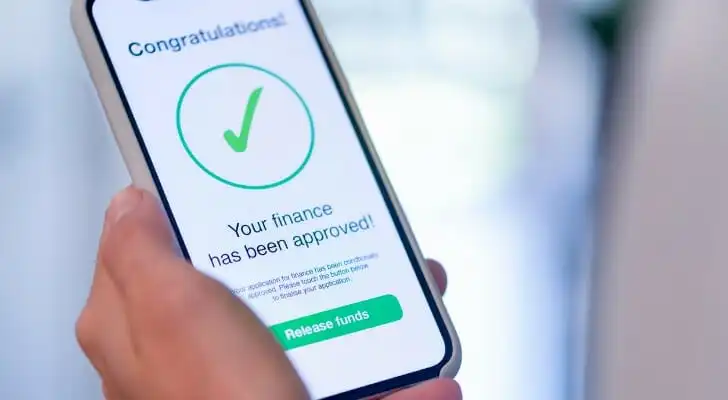There was a time when finances and technology were separate, like church and state. If you needed money, you went to the bank. If you wanted to play games, you used a machine. But now, there is fintech: The marriage between finance and technology. Here’s what fintech means for your future. Consider enlisting the services of a financial advisor to get a better understanding of how the growing field of technology can impact your investment and savings decisions.
What Is Fintech?
Financial technology, also known as fintech, was launched as a means of improving financial services, like those at banking and investment institutions. But now, fintech encompasses a wide variety of services and products. It’s the convergence of business, finances and technology.
Where once you’d visit a bank’s brick-and-mortar branch to check your account or handle money matters, now you can just go online to your bank’s website. That’s fintech. The internet and then the emergence of smartphones, propelled fintech into just about every home. It no longer exists just for those with have access to certain financial services.
What Does Fintech Impact?

Many people assume fintech just refers to SaaS (software-as-a-service) companies that venture capitalists invest in, but you probably interact more with financial technology than you realize. Financial technology is almost all-encompassing. For instance, it’s hard to keep in touch with financial institutions without technology. Here are many of the ways it may be impacting you when it comes to your finances.
1. Sending and Receiving Money
Maybe when you were younger, an older relative sent you cash or a check in the mail. Then you went to the bank — in person — to deposit it. You completed a deposit form, stood in line and then spoke with a bank teller who handled your transaction. This all happened during normal banking hours.
Now, you can send and receive money straight from your banking app. If you happen to get a check, you can take a photo of it and deposit it from your phone. Cash still exists, but it takes a trip to the bank to deposit it. There are drive-thru ATMs to avoid the line inside, but modern banking apps make the trip unnecessary.
2. Tracking Bills, Expenses and Income
There was a time when people would get their paycheck on Friday, deposit it in the bank and then write checks for their bills, stuff them in envelopes, slap on a stamp and put them in their mailbox. How long did this take? Too long.
Now, you can get paid through wire transfers or direct deposit — a deposit straight into your bank account without you making a bank trip. You can automate your bills to make payments at the same time every month. This means you won’t be subjected to late fees since your payment is automatically deducted from your account.
You can track your income and expenses, giving you easy access to making sure you’re only spending what you have. A long time ago, you’d get a list of account transactions every month. Now, you can check your transactions anytime you wish, from as many banks or credit card issuers as you have.
Fintech also brings banking to underserved communities, which might not otherwise have access or tools to get to a traditional bank or institution.
3. Checking Credit
What did we do before we could check our credit scores and credit reports online or swipe through an app? Now, it’s commonplace to check your credit through online banking websites, your credit card issuer, or other apps — all for free. You can also get your credit report online through annualcreditreport.com for free once a year.
Being able to quickly check your credit score gives you the chance to make sure your history is accurate. Also, if you need to borrow money or apply for credit, you can see if you qualify before applying.
4. Investing
If you were never familiar with investing, especially for retirement, it may be because you didn’t have the tools in place to get started and maintain a portfolio. It’s not really your fault. There’s a chance you didn’t know where to look.
Now, investing apps are “en masse.” Everything from online brokerages like Robinhood to robo-advisors like Betterment. Robo-advisors make investing easy for the hands-off investor. If you know the importance of investing but aren’t well-versed in analyzing stocks and other securities, you could use a robo-advisor.
Even fees on things like trades are no longer a barrier to investing. Many accounts have moved to free commissions and trades. Along with that, a number of companies don’t have a minimum deposit requirement. Or if they do, it’s a very low amount.
In fact, you can even invest in fintech itself.
5. Finding Insurance
Whether you’re looking for a new policy or comparing your current one to what’s out there, you can do that fairly quickly with fintech. You can browse through insurance offerings on auto, home, life and other types of insurance policies.
In fact, many insurance companies will allow you to compare your current policy to those out there. Or you can use a quote-only site, like The Zebra, to compare offers.
The Growth of Fintech
The marriage between finance and technology isn’t only for consumers, although that’s a big chunk of the target audience. But different companies exist for different reasons. There are also financial technology companies for banks, bank clients and other businesses.
How you use fintech depends on your needs and purpose. If you’re looking for a personal loan, you might use a site to compare all your prospective offers in one place, rather than each individual personal loan lender. If you own your own business, you might use software to track your employee payroll and hours. You might belong to a bank that’s looking to increase the ease of using the app and website.
Bottom Line

As the fintech world expands, financial technology will pit consumer demands against the regulation of products and services. While automation has catapulted fintech, regulation is still slow to catch up. Many fintech companies see a problem that needs fixing, but it doesn’t mean that laws in place allow those solutions to take place. Sometimes, companies are created faster than regulators can monitor.
Tips for Using Fintech
- If you’re struggling to understand the world of fintech, you might want to talk to a financial professional. Finding a financial advisor doesn’t have to be hard. SmartAsset’s free tool matches you with up to three vetted financial advisors who serve your area, and you can have a free introductory call with your advisor matches to decide which one you feel is right for you. If you’re ready to find an advisor who can help you achieve your financial goals, get started now.
- When you sign up for a new app, you’re handing over personal and private information. While it might make your life easier, it doesn’t make it safer. As you start to use the tools in place that are there to help you, make sure to learn and understand how they are using your personal data. Know that data breaches and hacks are now common, from retailers like Target to credit bureaus like Equifax. Protect your privacy with SmartAsset’s tips for online financial transactions.
Photo credit: ©iStock.com/courtneyk, ©iStock.com/ridvan_celik, ©iStock.com/FG Trade
